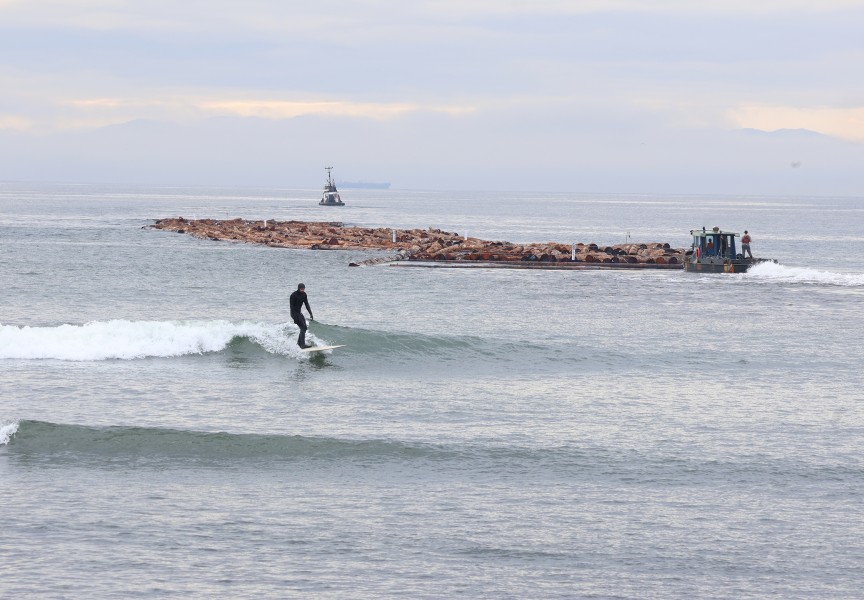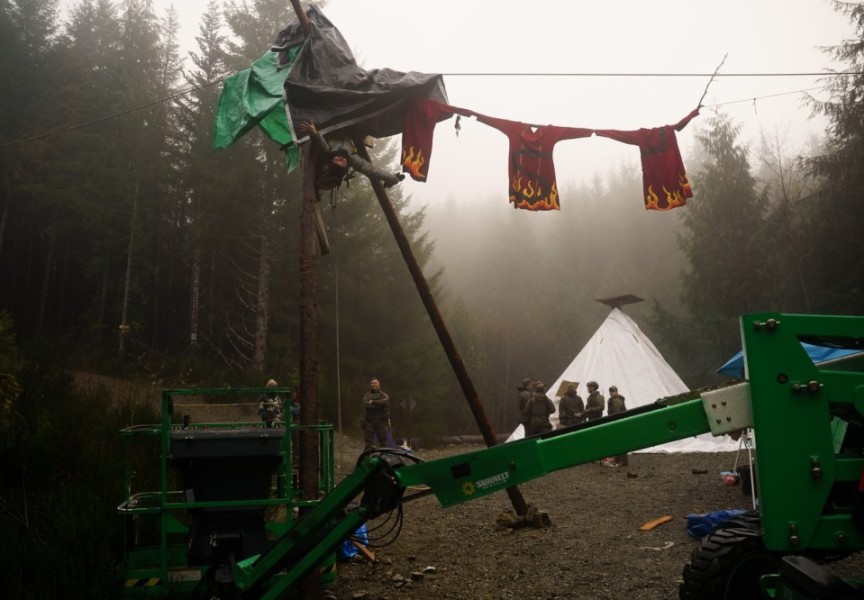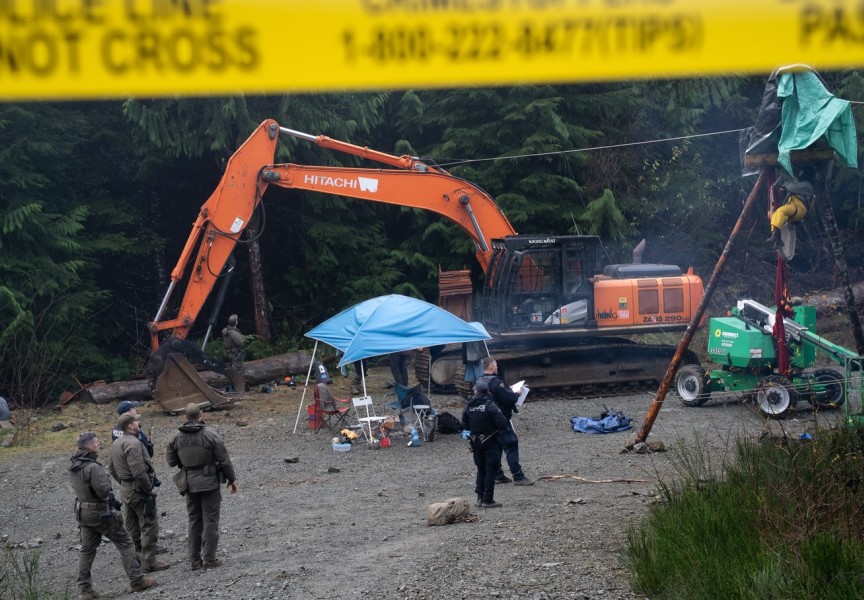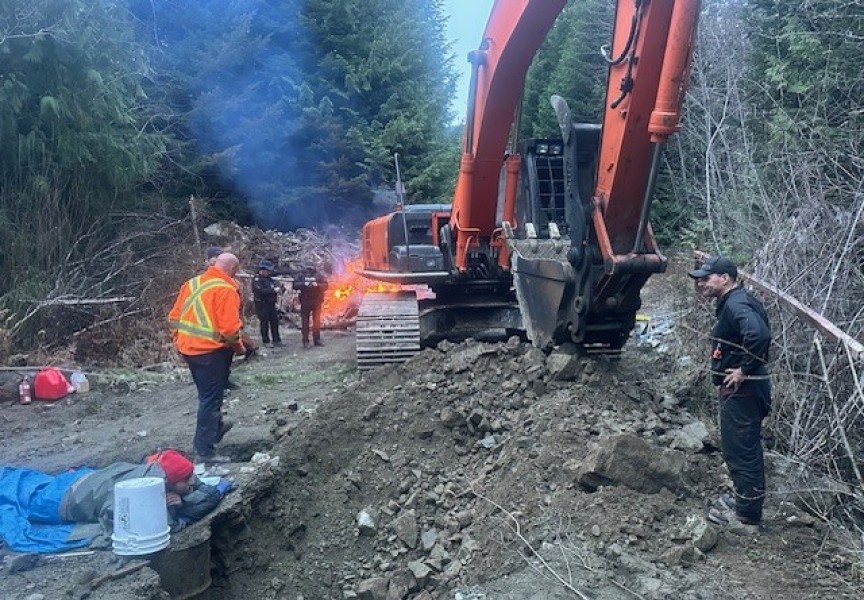Registered Professional Forester (RPF) Len Apedaile is the general manager of Tiičma Forestry LP, a small market logger based up in Ka:’yu:’k’t’h’/Che:k’tles7et’h’ First Nations (KCFN) territory on Vancouver Island’s north coast.
He thinks, if anything, the American tariffs scenario of 25 per cent on all Canadian imports will give businesses the opportunity to re-evaluate how they fundamentally do things – especially since President Trump postponed the tax threats until March to allow for fresh negotiation. The tariffs were originally set to take effect on Feb. 4.
“Across many sectors in Canada with what’s happening right now, we’re recognizing that we need to reduce our dependency and diversify. This doesn’t happen overnight, but I think that you’ll see that this will spur on those efforts over time,” said Apedaile.
“I’m always an optimist. There’s always silver clouds in things and sometimes you can get complacent when you are set in an easy way of doing things, and then all of a sudden that apple cart gets knocked over and you really have to wake up and assess how you can ensure that you can continue to be resilient,” he continued.
This past year, the U.S. raised duty rates on imports of Canadian softwood lumber products from 8.05 per cent to 14.54 per cent. The BC Lumber Trade Council (BCLTC) says the U.S. government’s decision to impose an extra 25 per cent tariff is “unjustified and harmful.”
“The Canada-U.S. lumber trade is mutually beneficial,” said Kurt Niquidet, President of the BCLTC, in a written statement. “American demand exceeds domestic supply—requiring U.S. builders to import about 30 per cent of their lumber needs. Canadian producers fill most of this gap, ensuring a stable, predictable supply of quality lumber. Tariffs disrupt this essential supply chain, increasing building material costs, at a time when affordability is already a major concern for American families.”
Apedaile agrees.
“We really don’t understand where these tariffs are coming from because they just don’t make sense for the Americans or us. They just don’t make sense in terms of what we collectively are trying to achieve,” he said. “Margins in forestry are already tight and the proposed tariffs simply introduce even more uncertainty into our sector and viability of operations.”
Tiičma Forestry operates in a high-cost area of Vancouver Island. The relatively new First Nations forestry company sells west coast old and second growth logs to a Terminal Forest Products sawmill on the mainland who exports primarily to the U.S.
Terminal Forest sales and production manager Deepak Rai said in an email that he’s been speaking with customers over the past few weeks and “there are more questions than answers”.
“Even up until 1 p.m. yesterday (Feb. 3) we had no clear information from our US Customs brokers on how the tariffs would be administered if imposed. Luckily, we dodged a bullet yesterday and am hopeful that this will fizzle away,” said Rai.
British Columbia’s job losses are estimated at 124,000 by 2028, with the largest declines in natural-resource sector export industries and associated manufacturing, according to a preliminary assessment done by the B.C. Ministry of Finance. This projection is based on the assumption that a 25 per cent tariff would remain in place for the duration of the Trump presidency and that Canada retaliates.
Apedaile says if Tiičma Forestry must slow down operations, it will have an impact for “everyone involved”, including staff and contractors.
“If we have to curtail operations, that’s when it gets intense in terms of the number of people employed,” said Apedaile. “That puts people off work and when they are off work they don’t have an income and they can’t provide for their families. Our business activity is integrated with the North Island economy.”
He brought up the historic Canadian saying, “We are hewers of wood and drawers of water.”
“Ultimately, we produce the raw materials like logs or water that go off to markets and be converted into other higher value products for end use, the milling sector and the value-added sector is key to that process. The stronger, healthier milling and value-added sector that we can have in Canada, then the more of that value we can capture,” said Apedaile.
The latest B.C. Ministry of Forests trade data shows that 58 per cent of B.C.’s total forest products are being exported to the U.S., totalling almost $6.2 billion for the first 11 months of 2024.
Ranked second is China, Hong Kong and Macau at $2.3 billion or 22 per cent, followed by Japan at $806 million or 8 per cent.
The Canadian market is still “relatively small” compared to the U.S., said Apedaile, and mill production is all currently geared towards a higher volume.
Carl Harris, chairman of the National Association of Home Builders of the United States, sent a letter to President Trump prior to the 30-day reprieve stating that American homebuilders rely on materials produced in Canada and Mexico and that imposing tariffs would ultimately lead to increased housing prices.
“Further supply chain disruptions from increased tariffs coupled with increased demand for materials could also hinder rebuilding efforts in areas affected by natural disasters, which you have pledged to help rebuild as quickly as possible,” wrote Harris in a Jan. 31 letter to President Trump.








